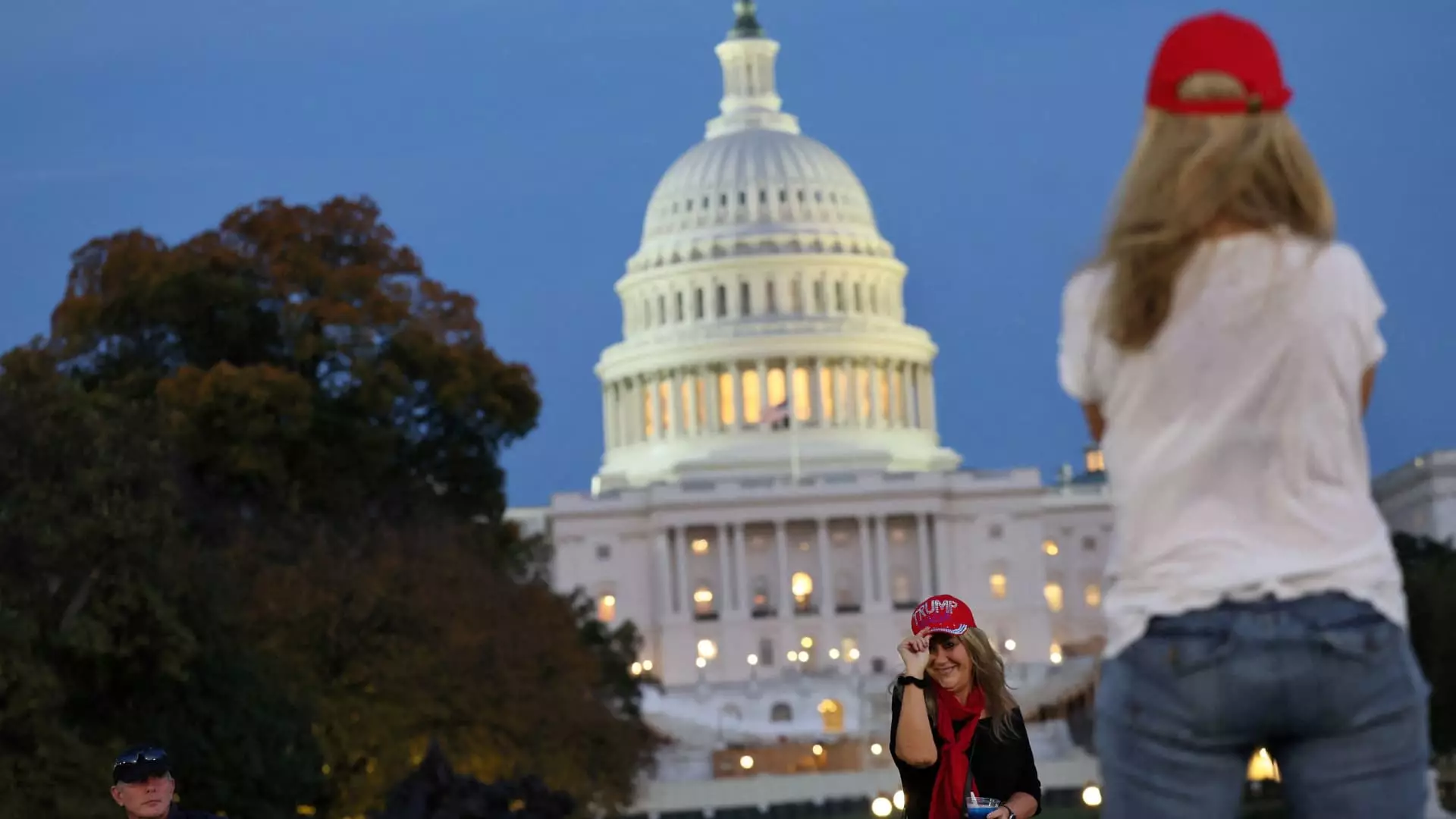In the wake of Donald Trump’s election as President, individual investors find themselves amid a whirlwind of uncertainty and optimism. While the markets experienced a significant rally upon the announcement of his victory, with the Dow Jones Industrial Average surpassing 44,000 for the first time, financial experts recommend proceeding with caution. As the dust settles from the election, understanding how Trump’s policies may influence investment strategies becomes paramount.
The immediate response of the stock market to Trump’s win has been a subject of interest and analysis. Investors often welcome a shift in leadership that promises potentially business-friendly policies. However, relying solely on the post-election market spikes can be misleading. As financial planner Jude Boudreaux emphasizes, maintaining a robust long-term financial strategy should take precedence over chasing ephemeral market trends. Market jumps should not be confused with a validation of all of Trump’s proposed policies, as noted by Lee Baker, who cautions against making sweeping financial changes at this time. Such counsel reflects the broader consensus that, while optimism in the market is prevalent, the sustainability of this trend remains uncertain.
For individual investors, it remains essential to adhere to personalized financial plans rather than reacting impulsively to the political climate. Marguerita Cheng points out that factors like personal goals, risk tolerance, and investment horizons should dictate asset allocation, irrespective of election outcomes. The call for a balanced approach shuns the temptation to deviate from established plans just because of short-term market fluctuations.
The potential policies under Trump could influence specific sectors favorably. For instance, his anticipated approach to deregulation may benefit energy, financial, and industrial stocks. However, Cheng’s advice to gain exposure through broad-based indices serves as a prudent strategy to manage risk while also capitalizing on possible market growth.
An integral part of Trump’s economic narrative during the campaign was the promise of tax reductions. The conversations around extending provisions from the Tax Cuts and Jobs Act, specifically regarding lower taxes for both individuals and corporations, resonate with investors’ hopes for enhanced economic growth. Many expect these tax changes to positively impact market dynamics in the following years, particularly in 2026 and 2027, as Stacy Francis highlights in her discussions. The prospect of enhancing disposable income through proposed tax cuts may indeed stimulate consumer spending.
Nevertheless, the reality of tax policy implementation is complex. As David Haas reminds investors, any promises made during the campaign need to undergo the legislative gauntlet, where unforeseen challenges can arise. This uncertainty calls for patience and scrutiny as the administration unfolds its legislative agenda.
As Trump’s economic policies develop, inflation presents a crucial consideration for investors. While the Federal Reserve has worked diligently to maintain inflation near its target, the introduction of pro-business policies and tax cuts could potentially ignite inflationary pressures. On one hand, increased disposable income among Americans can lead to higher consumer spending, accelerating price increases. On the other hand, tariffs proposed by Trump could further exacerbate inflation by raising the cost of imported goods—an aspect that investors should not overlook.
The interplay between these policies and interest rates presents another layer of complexity. The Federal Reserve’s recent interest rate cuts reflect an attempt to stabilize economic growth. However, the future trajectory of rates could be significantly influenced by Trump’s policies and their effects on inflation. Investors need to remain vigilant regarding these changes, as interest rates play a crucial role in shaping market performance.
The election of Donald Trump as President has opened a new chapter in the narrative of investing. While the immediate aftermath saw an exuberant market rally, the long-term implications of his proposed policies remain to be seen. Financial experts urge individual investors to adhere to sound financial strategies rather than reacting impulsively to market fluctuations or political developments. The potential for tax reforms and economic policy shifts introduces both opportunities and risks, particularly concerning inflation and regulatory changes. Ultimately, a cautious and informed approach will empower investors to navigate this uncertain landscape effectively, safeguarding their investments while adapting to the evolving market conditions.

